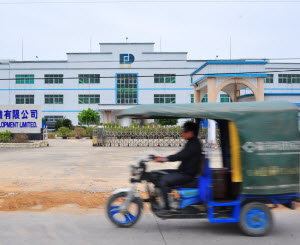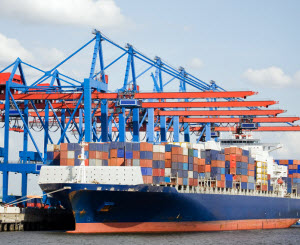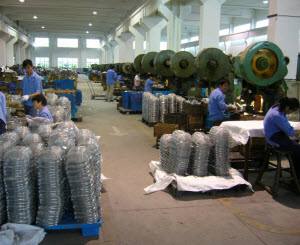Have you ever struggled with the question of when to buy factory direct and when to go through a vendor or trading company? Importers are often highly motivated to secure the lowest per-unit cost possible for the items they purchase from China. The old maxim of “cutting out the middleman” leads many buyers to reason that purchasing factory-direct is the only way to get the lowest cost of goods sold, and is thus the only smart option for buying from China.
This is not completely unsound logic, but like so often is the case this is not a hard-and-fast rule. In certain situations, there are advantages to dealing with other entities such as trading companies. Below we’ve outlined the pros and cons of buying factory direct.
The Pros
It should come as no surprise that working directly with your factory does provide some attractive advantages. These advantages include:

Direct Line of Communication
When you need to make modifications to your product, fast-track the production schedule, or need answers that can only be answered by someone on-site at the factory, you’ll be thankful that you’re working directly with your factory.
Response time is often critical in any manufacturing project, either domestically or overseas. If you have partnered with a reliable supplier, having direct access to their engineers and product design staff can mean huge reductions in lead time.

Attention to Detail
Except in rare cases when dealing with a truly huge factory, working directly with your supplier is a good indicator that your products receive the attention they deserve. It is likely that you will be assigned a factory contact who is directly responsible for the production line your products are being assembled on.
Buying agents and trading companies are by nature often ill-equipped to devote adequate attention to a single product. They deal with multiple factories producing an often dizzying array of products. This could mean that they are able to handle this level of production diversity with ease, but can be an equal indicator that things are falling through the cracks. It's important to consider the complexity of your order when deciding when to buy factory direct.
Lower costs
Its true – cutting out the middleman does mean you will often be able to secure a lower per-unit cost for your items. Working factory direct alleviates the need to finance the overhead costs of working with a trading company, such as commissions.
It’s important to note that some of these savings will be consumed by incidental costs of manufacturing. Working factory direct means you will need to hire your own 3rd party quality control firm as well as pay for freight forwarding and logistics support you’ll need.

The Cons
There are some difficulties that are posed by working factory direct. Trading companies exist because they add value in the form of easing or eliminating many of these difficulties. The price premium they charge largely pays for these value-adding services.
2. Prepare for the Long-Haul
China law experts point out that nearly 90% of business cases filed in China actually go to trial. For this reason, it is important that any business that chooses to operate in China is prepared to participate in protracted litigation.
[sidebar name="case studies"]
Size Matters
Buyers seeking to work factory direct will often do well in finding some of higher-profile, more sophisticated factories themselves. Unfortunately buyers can find themselves hitting a brick wall at this point, when the big sophisticated factories are unwilling to do business will smaller importers.

Larger factories are interested in producing large orders, and making use of their economies of scale. It simply would not be profitable for them to devote their resources to producing small batch orders when those same resources can be put to use on bigger projects. For this reason, large factories will often refuse to work with small to medium sized enterprises, unless those buyers are willing to pay a premium.
Interest Level
Even though direct communication is listed above as a Pro of doing business directly with your factory, there are caveats. Assuming a large, sophisticated factory does accept a small order, that buyer will almost certainly receive very little attention from the factory.

The level of service you can expect from the factory is directly proportional to the chunk of the factory’s total revenue your order represents. Having that direct line of communication will mean little when your calls and emails go unanswered.
Ease of Doing Business
Factories in China often do not have many English-speaking staff members, and even fewer who are well versed in western business practices. Buyers dealing factory direct may find themselves spending significant amount of time trying to overcome substantial language and cultural barriers.
If your quality standards, production schedules, and other relevant feedback is not fully understood by your supplier, you will likely end up highly dissatisfied with the products you receive.






